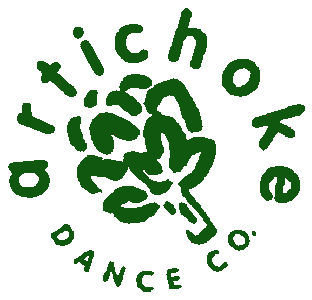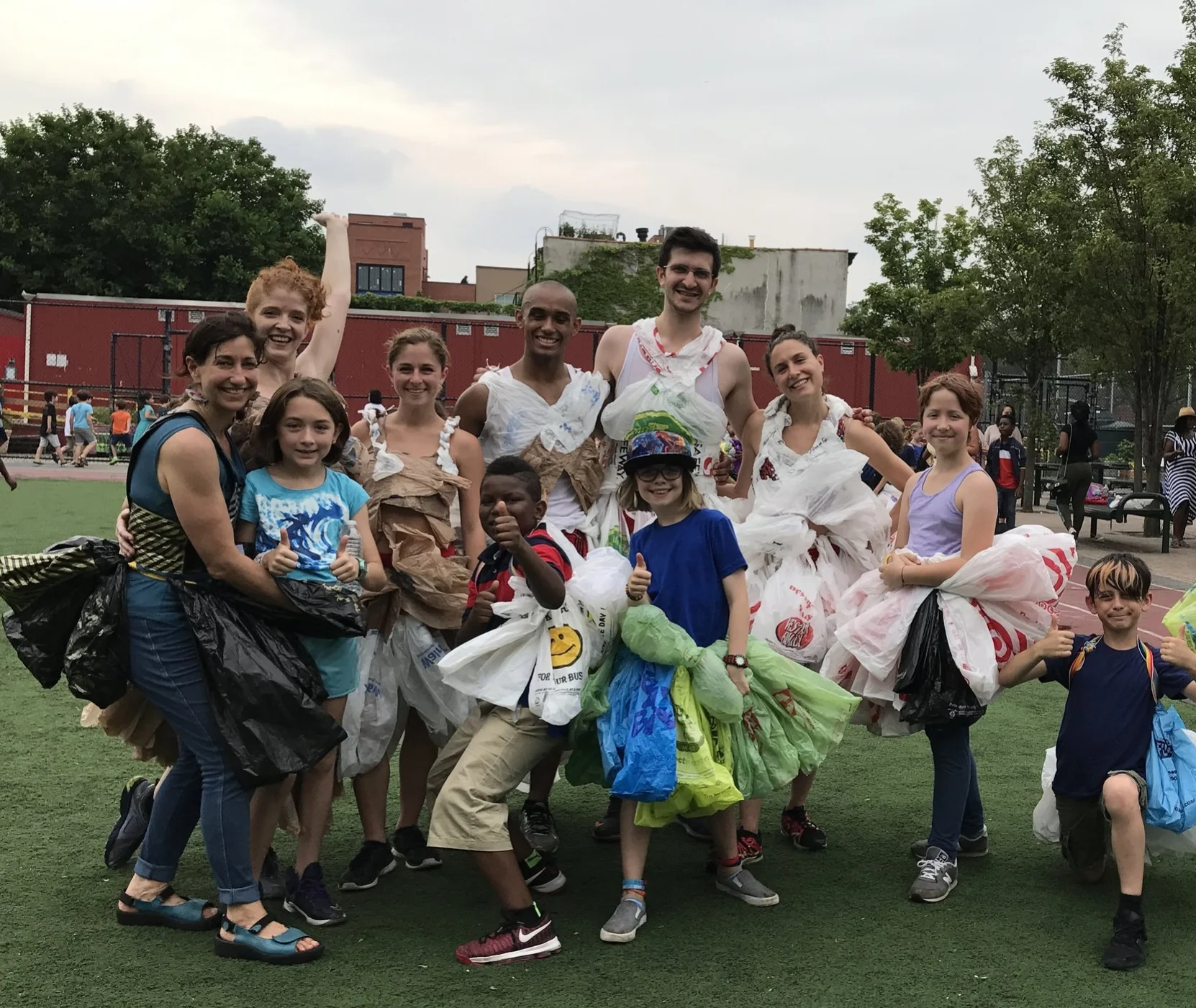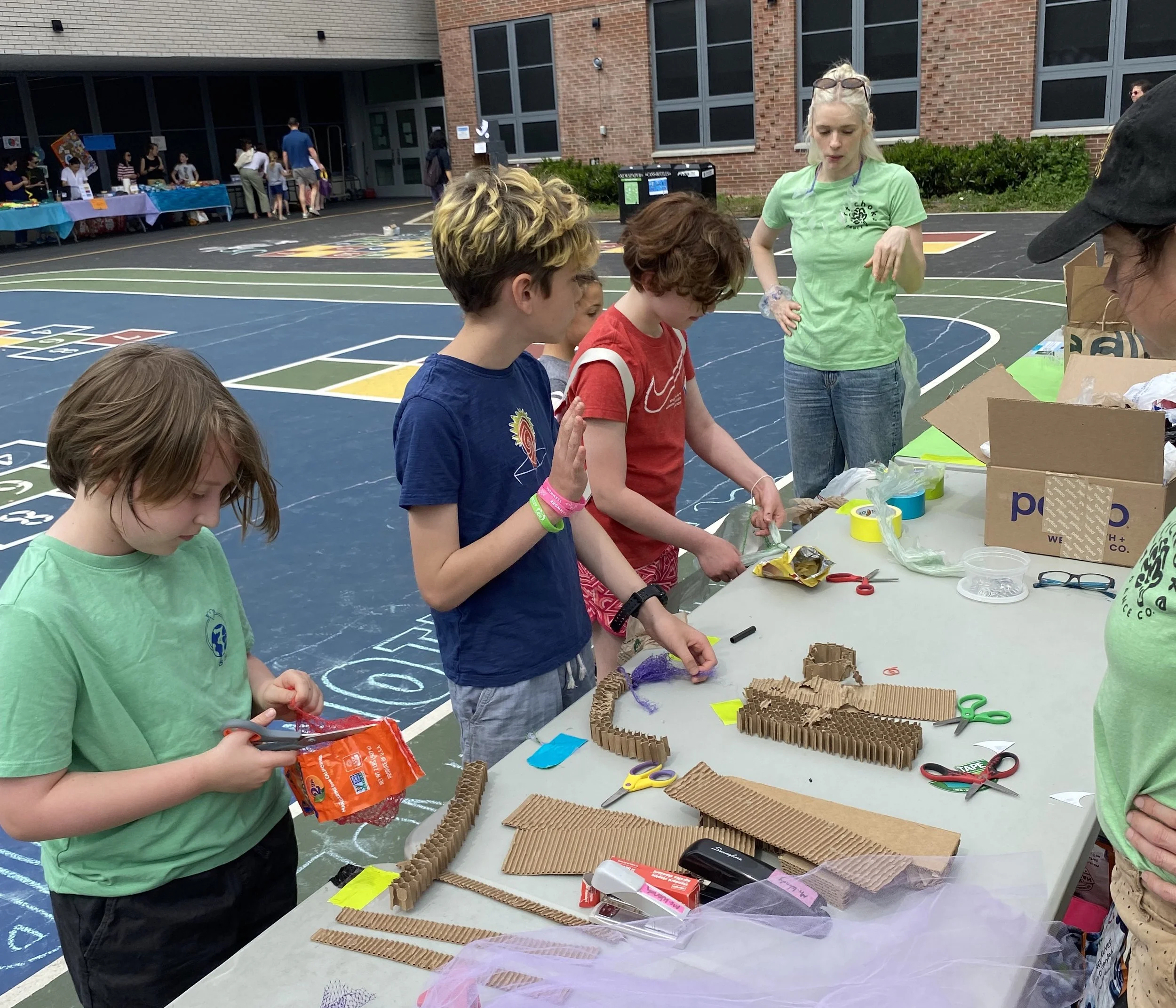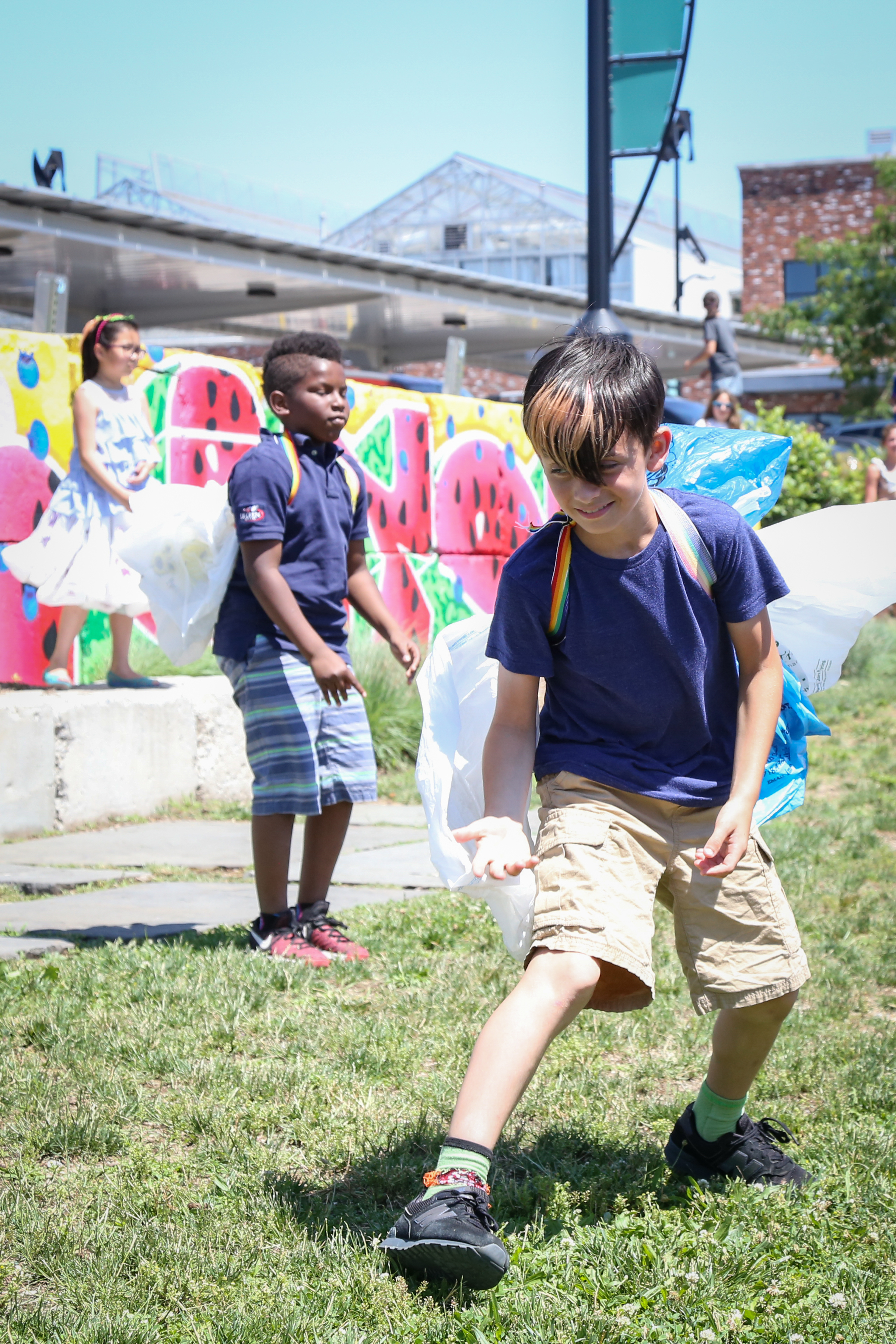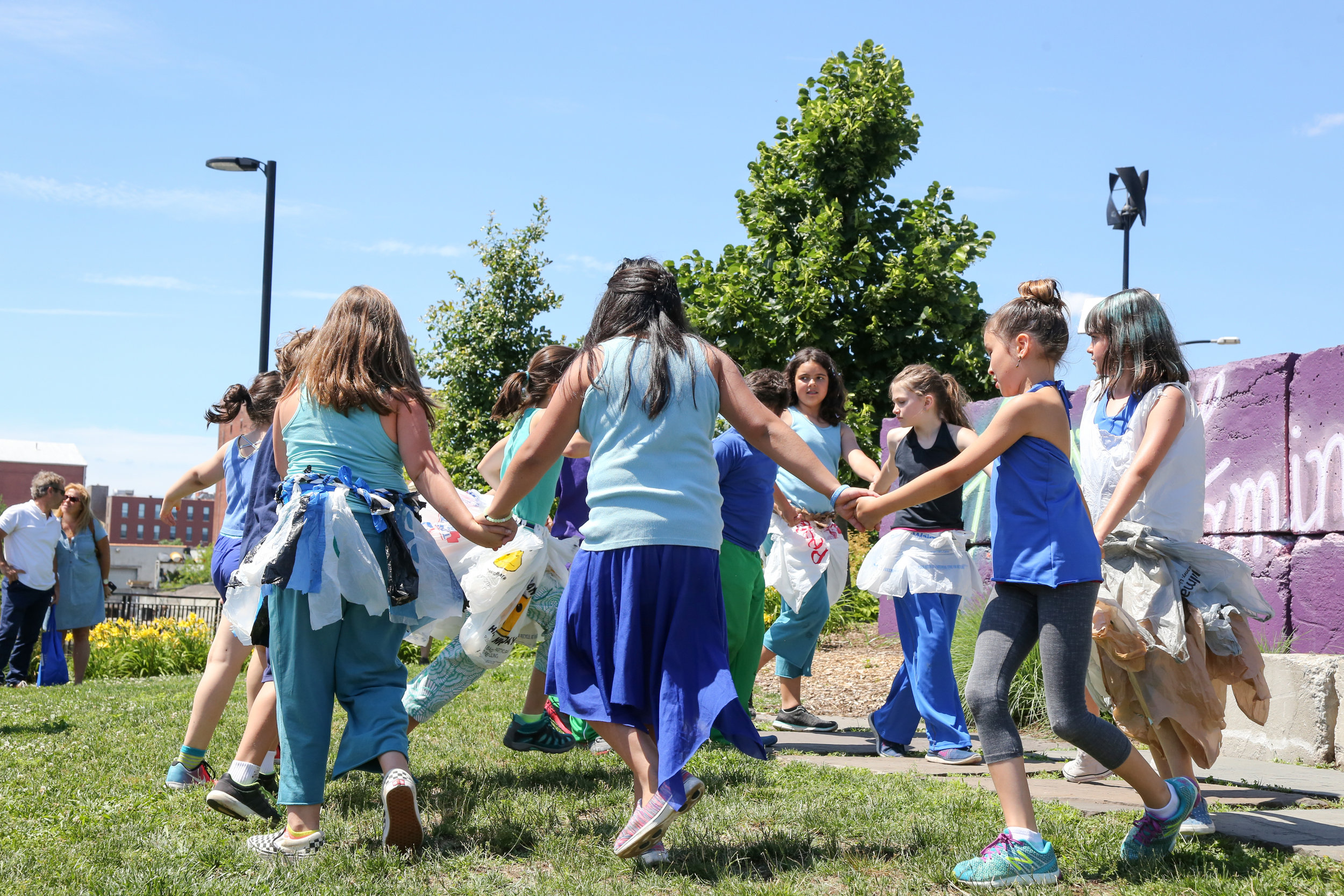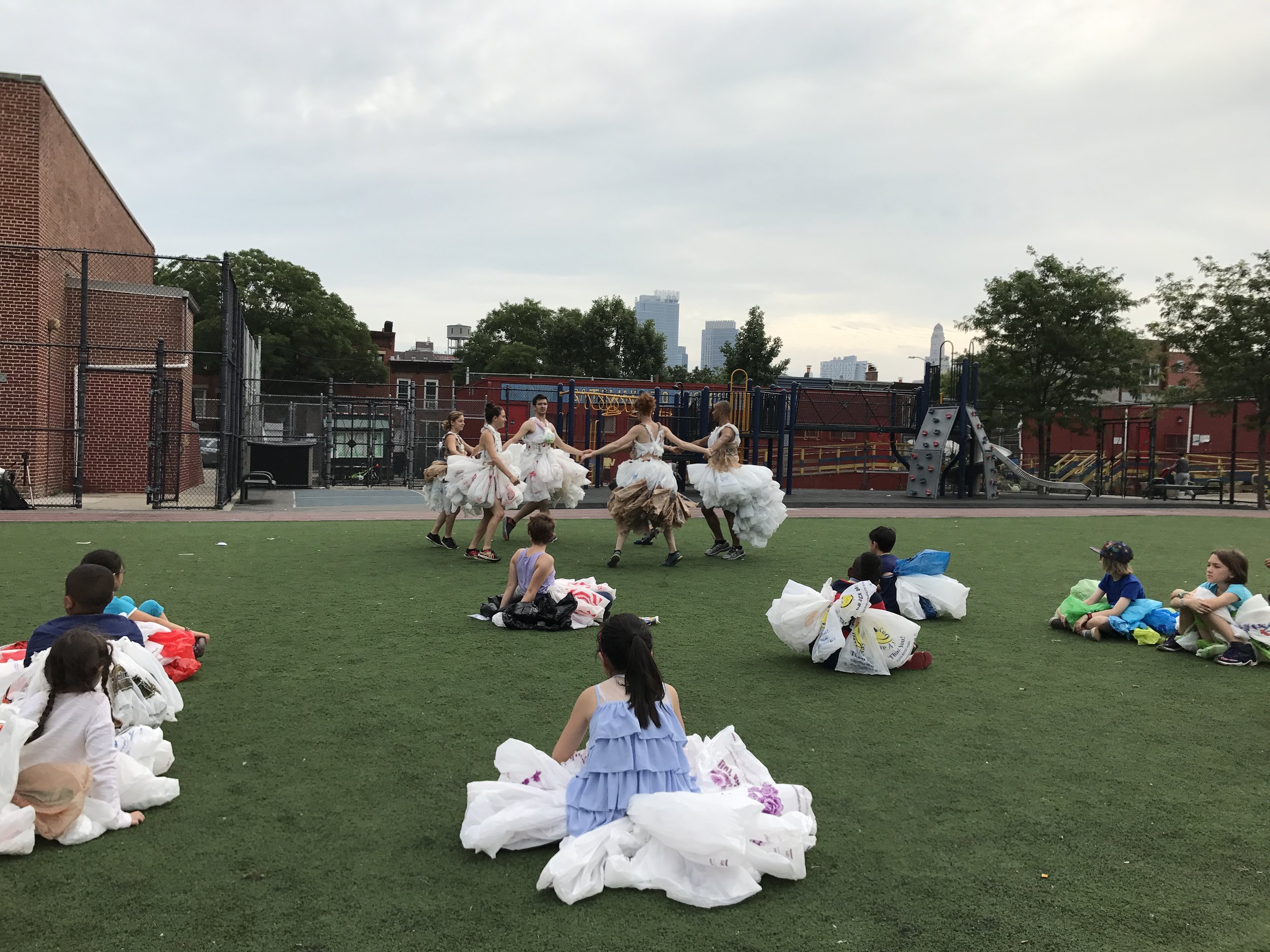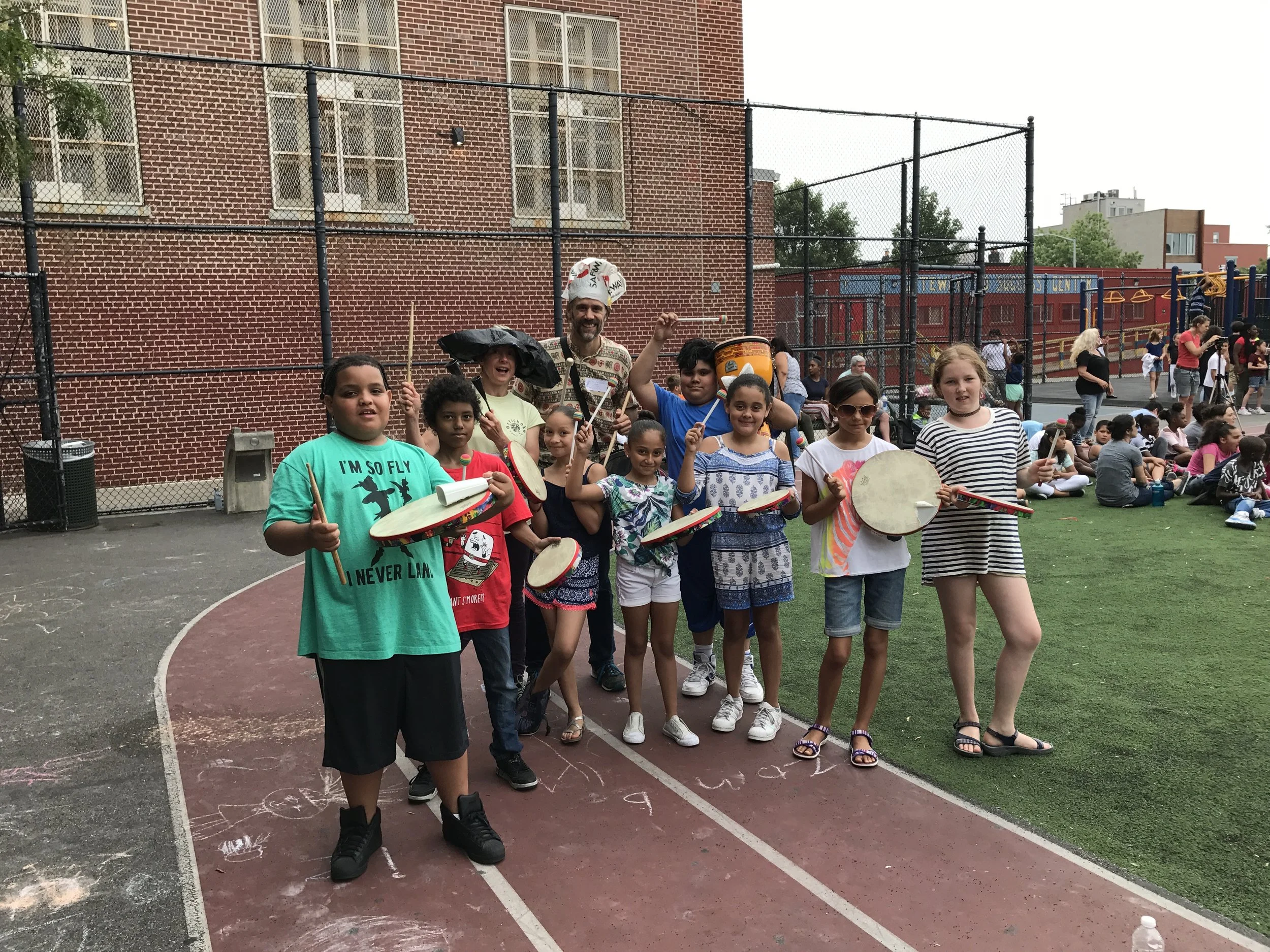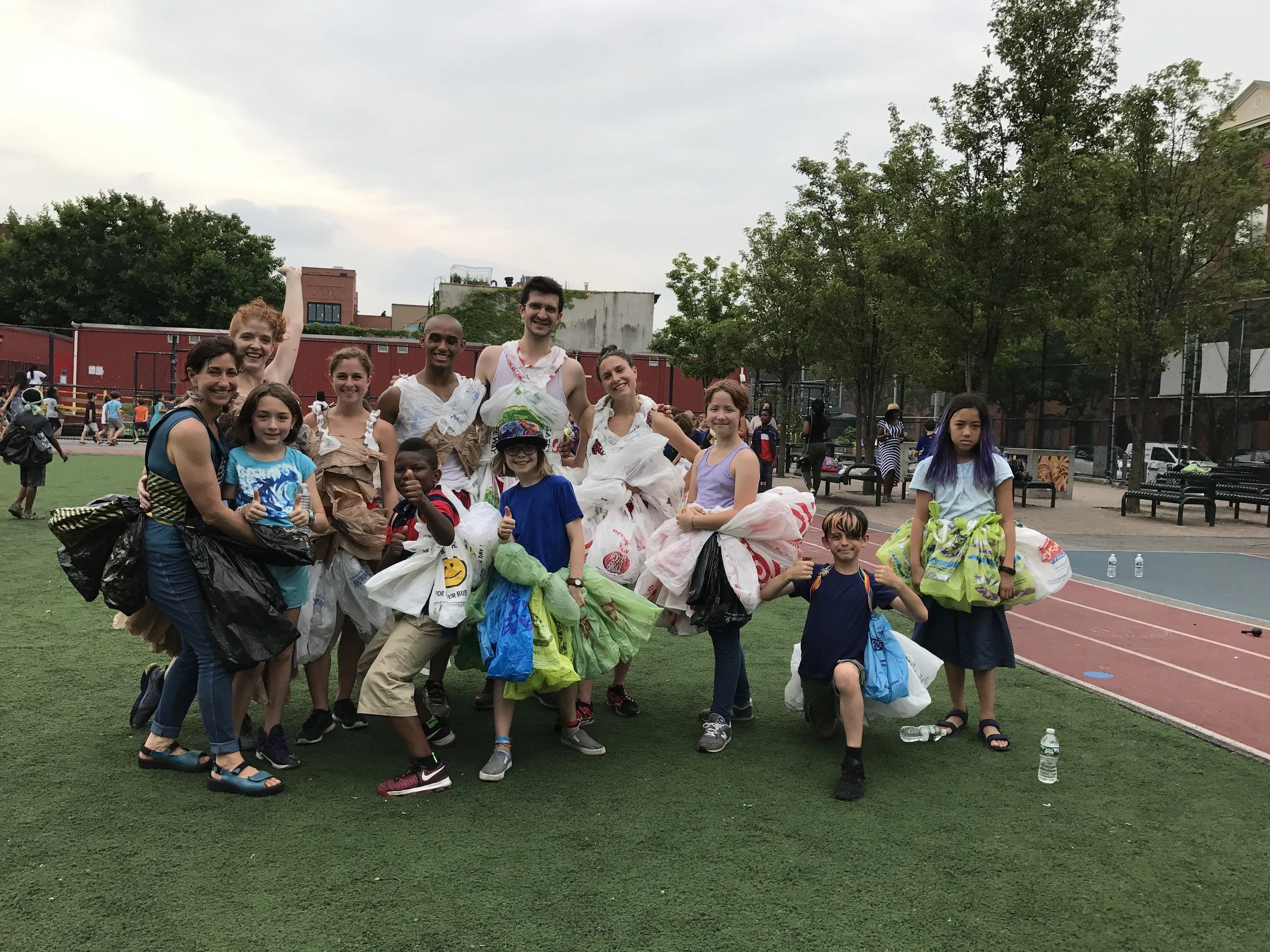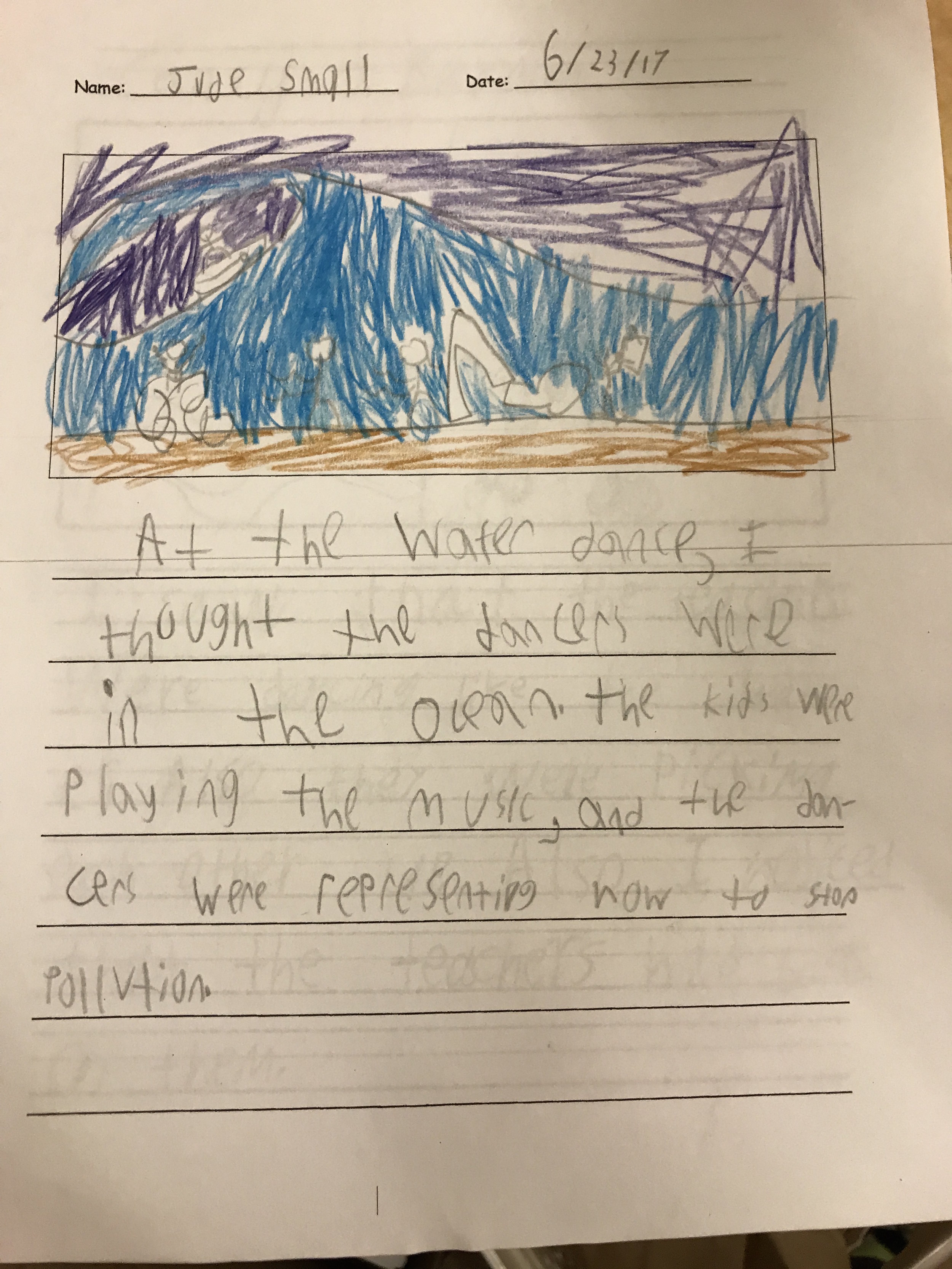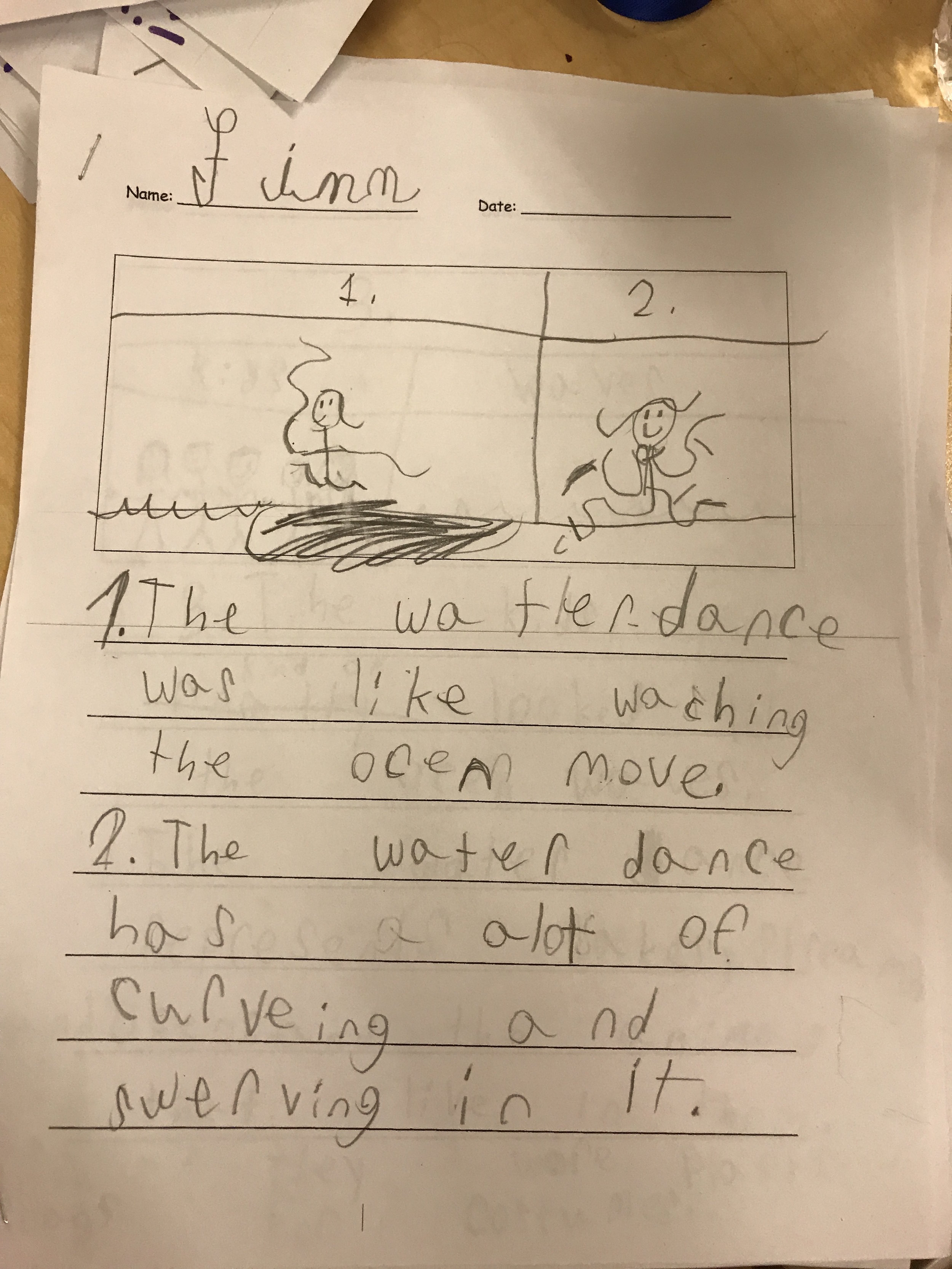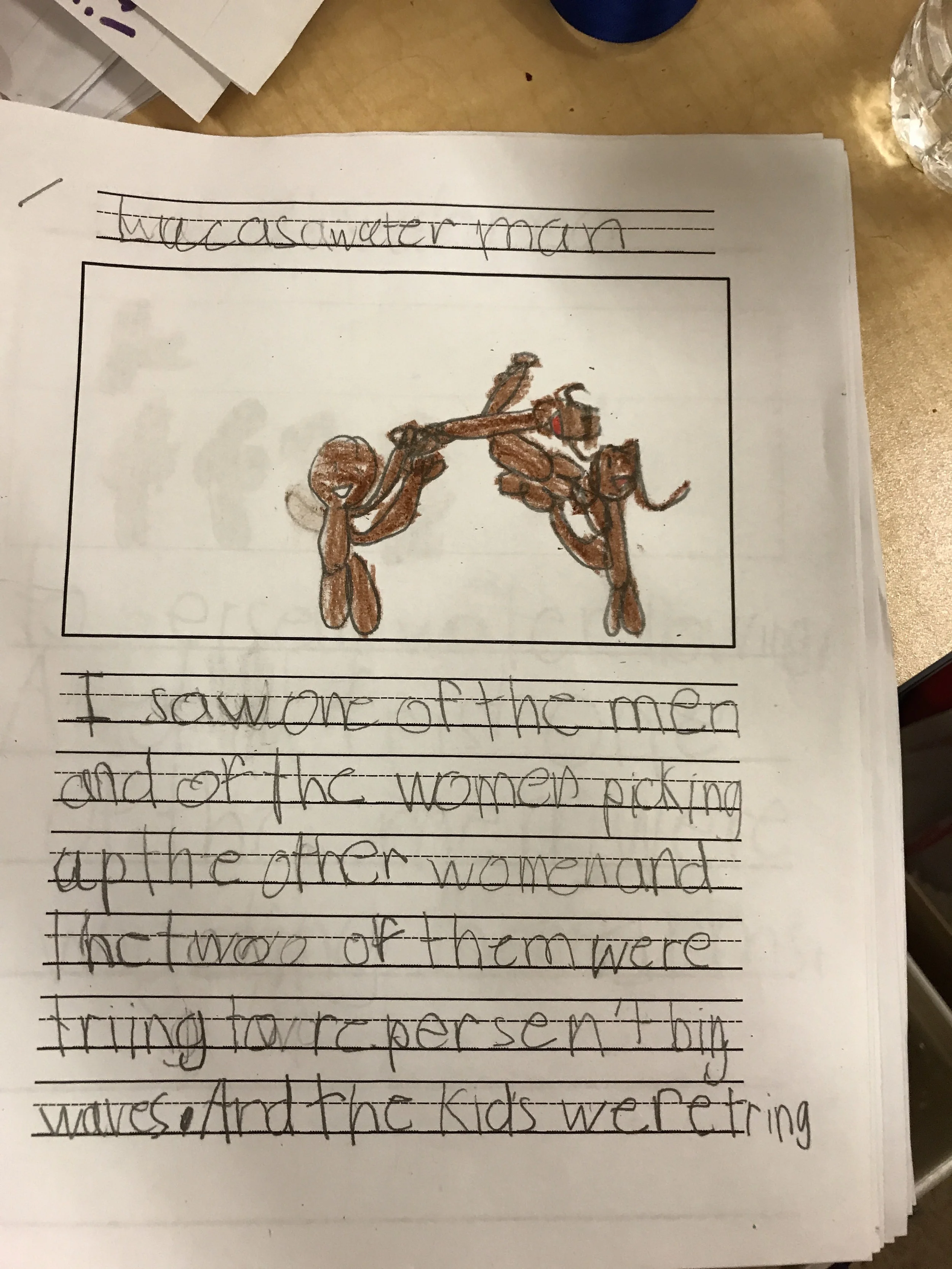K-12 Education Programs
"It was an incredible journey to take with you these past few months. You inspired immeasurable numbers of people. What a huge thing you've done for our school and community. WOW!"
Wendy Blum, PS32 Dance Specialist, Brooklyn NY
Performances and Curricula
Water Rises
Water Rises is a performance that models the nature of water and water systems through kinetic group choreography. (View excerpts of Water Rises) In the accompanying movement and science based curriculum, students learn about water cycles, properties, and physics. Through movement activities students develop a sensitivity toward others as they widen their understanding of water issues from a local to global scale. This package includes a curriculum containing of 7 modules delivered over 12 classes for teachers to implement surrounding a performance.
Plastic People of the universe
Plastic People of the Universe is a performance that illuminates the nature of plastics through dynamic dance sections and interactive theater. (View excerpts of Plastic People of the Universe) The accompanying curriculum teaches the chemistry and composition of plastics, waste and recycling challenges, effects of plastic on water and land, and explores plastic alternatives through interactive learning and applied creation. The curriculum, which includes visual and performing arts activities, science learning and discovery, and activism challenges. Curriculum materials are made available with a school performance.
For the above programs, Artichoke Dance Company can also provide teaching artists to implement the curricula or professional development for educators to guide them through curriculum implementation in their classrooms. All curricula are aligned with New York State Arts and Science Learning Standards.
Residencies
We work with schools to construct unique residencies to meet learning goals and involve students in arts, science, sustainability and earth stewardship. Residencies can include in school and/or after school education, family day programming, professional development for teachers and staff, as well as community facing programs, such as student performances.
Workshops and Workshop Series
Water, Power, We
Workshops involve students in individual and group activities modeling the molecular nature of water, introducing environmental justice principles through the physicalization of interdependence. Often accompanied by a performance of Overflow.
Trashion
Hands on workshops appropriate for all ages repurpose materials headed to landfill into costumes and ready wearables, such as hats, jewelry or halloween costumes. The process begins with collection drives of target materials and often culminates with a trashion parade, showcasing the student creations. Student learn skills such as braiding and fusing, and put their creativity to use. This process engages students in zero-waste practices and principles.
